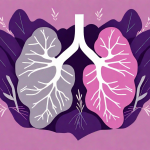Regular exercise is a formidable ally in the fight against cancer, offering a multifaceted approach to prevention. This insightful article explores the extensive benefits of physical activity, from enhancing blood circulation and regulating hormone levels to boosting the immune system and promoting a healthy gut microbiota. Delving into the latest research, it highlights how exercise can induce gene expression changes related to tumor suppression and improve the efficacy of cancer treatments. It emphasizes the importance of aerobic exercises, strength training, and flexibility exercises, providing practical advice on incorporating these activities into daily life to significantly lower cancer risk. Beyond cancer prevention, exercise offers holistic benefits, improving mental well-being, managing stress, and enhancing overall physical health. This comprehensive guide underscores the powerful impact of exercise on preventing cancer and enhancing life quality, encouraging readers to embrace an active lifestyle for a healthier future.
Exercise is more than just a tool to lose weight or build muscle; it’s a key ally in the fight against cancer. Research has consistently shown that regular physical activity can significantly reduce the risk of several types of cancer, including breast, colon, and lung cancer. By incorporating regular exercise into our lives, we can significantly reduce our risk of developing cancer. The connection between exercise and cancer prevention has been extensively studied, and the results are overwhelmingly positive. Let’s delve into the science behind exercise and cancer prevention to understand how this powerful tool can help us combat this disease.
The Science Behind Exercise and Cancer Prevention
When we engage in physical activity, our bodies undergo a series of physiological changes that have a direct impact on our overall health. Exercise stimulates the production of endorphins, which are our body’s natural mood elevators. These endorphins not only boost our mental well-being but also have anti-inflammatory and anti-oxidant properties that help combat cellular damage, a common precursor to cancer.
Beyond the release of endorphins, exercise also promotes efficient blood circulation. This increased blood flow allows our cells to receive essential nutrients and oxygen while efficiently eliminating waste products. By enhancing our body’s natural detoxification processes, exercise helps eliminate harmful substances that may contribute to the development of cancer.
Moreover, exercise plays a crucial role in regulating hormone levels in our bodies. Hormones are chemical messengers that control various bodily functions, including cell growth and division. Regular physical activity helps maintain a healthy hormonal balance, reducing the risk of hormone-related cancers such as breast and prostate cancer.
In addition to its direct effects on our cells and hormones, exercise also strengthens our immune system. The immune system is responsible for identifying and eliminating abnormal cells, including cancer cells. Regular exercise enhances the function of immune cells, making them more efficient in recognizing and destroying these harmful cells. This immune-boosting effect of exercise can significantly reduce the risk of developing cancer and improve the chances of successful treatment.
Furthermore, exercise has been shown to have a positive impact on our gut health. The gut microbiota, a complex community of microorganisms residing in our digestive system, plays a crucial role in maintaining our overall health. Imbalances in the gut microbiota have been linked to various diseases, including cancer. Exercise promotes a diverse and healthy gut microbiota by increasing the production of beneficial bacteria and reducing the presence of harmful ones. This favorable gut environment created by exercise can help prevent the development of cancer and support overall well-being.
Additionally, exercise has been found to regulate insulin levels and improve insulin sensitivity. Insulin is a hormone that helps regulate blood sugar levels. High insulin levels and insulin resistance have been associated with an increased risk of developing certain types of cancer, such as colorectal and pancreatic cancer. Regular physical activity helps maintain optimal insulin levels and improves the body’s ability to utilize insulin effectively, reducing the risk of these cancers.
Lastly, exercise has a profound impact on our mental health and stress levels. Chronic stress has been linked to the development and progression of cancer. Engaging in regular physical activity helps reduce stress and anxiety, promoting a positive mental state. By managing stress levels, exercise indirectly contributes to cancer prevention.
In conclusion, exercise offers numerous benefits beyond its well-known effects on physical fitness. Its impact on cancer prevention is multifaceted, involving the release of endorphins, improved blood circulation, regulation of hormones, strengthening of the immune system, promotion of a healthy gut microbiota, regulation of insulin levels, and reduction of stress. By incorporating regular exercise into our lives, we can significantly reduce the risk of developing cancer and improve our overall well-being.
The Latest Research on How Exercise Prevents Cancer
As research on exercise and cancer prevention continues, exciting new findings are emerging. For example, recent studies suggest that exercise can induce changes in gene expression, specifically those related to tumor suppression and DNA repair. This means that exercise has the potential to alter our genetic makeup in ways that protect us from the development and progression of cancer.
Additionally, current research is also investigating the role of exercise in improving the efficacy of cancer treatments. Preliminary studies show that individuals who exercise regularly during cancer treatment experience fewer side effects and may have better treatment outcomes. These findings highlight the potential of exercise in enhancing our body’s ability to heal and recover.
Key Types of Exercise for Cancer Prevention
Now that we understand the science and the latest research behind exercise and cancer prevention, it’s essential to explore the key types of exercise that can have a significant impact on reducing our cancer risk.
Aerobic exercises, such as jogging, swimming, or cycling, elevate our heart rate and help improve cardiovascular health. Engaging in aerobic exercise for at least 150 minutes per week is recommended for optimal cancer prevention benefits.
Strength training exercises, on the other hand, help build lean muscle mass, reduce fat, and increase bone density. Regular strength training, incorporating resistance exercises like weightlifting or resistance band workouts, is crucial in reducing the risk of various types of cancer, including breast and colon cancers.
Flexibility exercises, such as yoga or Pilates, promote joint mobility, reduce stress, and improve overall flexibility. Integrating these exercises into our routines can assist in maintaining a healthy range of motion while reducing the risk of injuries associated with physical activity.
Proven Ways to Lower Your Cancer Risk through Exercise
Now that we have explored the different types of exercise, let’s discuss practical ways to lower your cancer risk through regular physical activity.
First and foremost, it is crucial to set realistic goals and create a consistent exercise routine that suits your lifestyle. Start by incorporating small changes, such as taking the stairs instead of the elevator or going for a brisk walk during your lunch break. Gradually increase the intensity and duration of your workouts as you become more comfortable and confident.
It is also essential to find activities you enjoy. Whether it’s dancing, hiking, or playing a sport, engaging in activities that bring you joy will increase your motivation to exercise regularly. Consider joining a fitness class or finding a workout buddy to make the experience even more enjoyable and social.
Remember, consistency is key. Aim for at least 150 minutes of moderate-intensity aerobic exercise or 75 minutes of vigorous-intensity aerobic exercise per week, spread out over several days. Additionally, try to include strength training exercises at least twice a week to further enhance your cancer prevention efforts.
Holistic Benefits of Regular Exercise
While the primary focus of this article has been on how exercise lowers cancer risk, it is essential to highlight the holistic benefits of regular physical activity. Exercise not only reduces our risk of cancer but also improves our overall physical and mental well-being.
Engaging in regular exercise brings about a sense of accomplishment and empowerment, enhancing our self-esteem and body image. It promotes healthy weight management, improves sleep quality, and boosts energy levels. Exercise also helps reduce stress and anxiety, cultivating a positive mindset and promoting mental resilience.
By incorporating exercise into our lives, we can take proactive steps towards reducing our cancer risk while simultaneously reaping countless other health benefits. So, let’s lace up our sneakers, embrace an active lifestyle, and move with purpose towards a healthier future.






